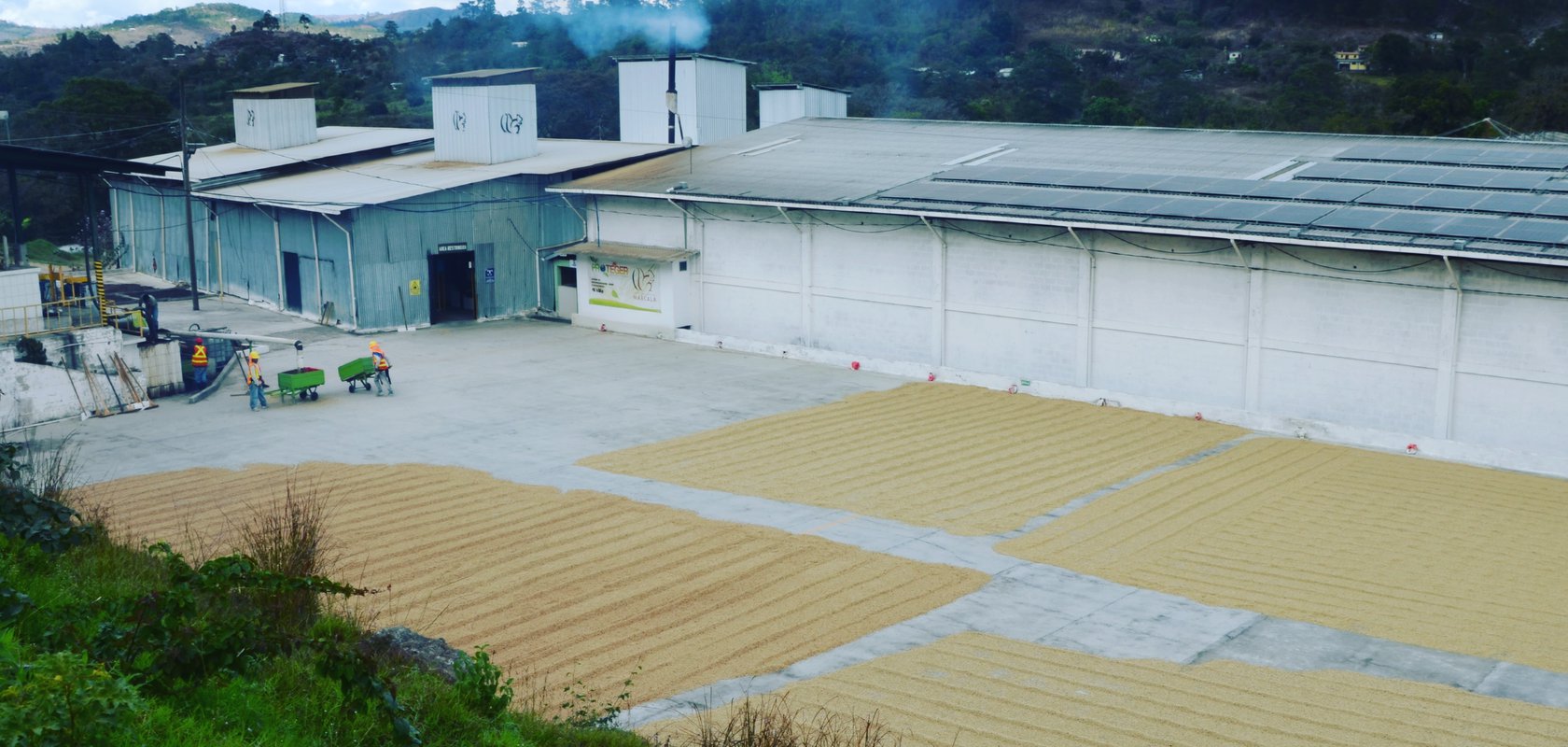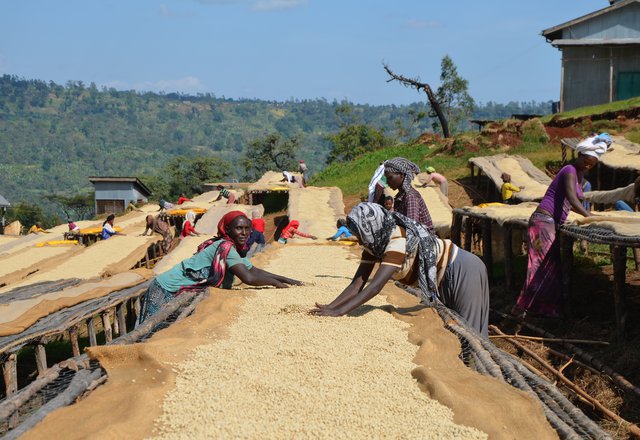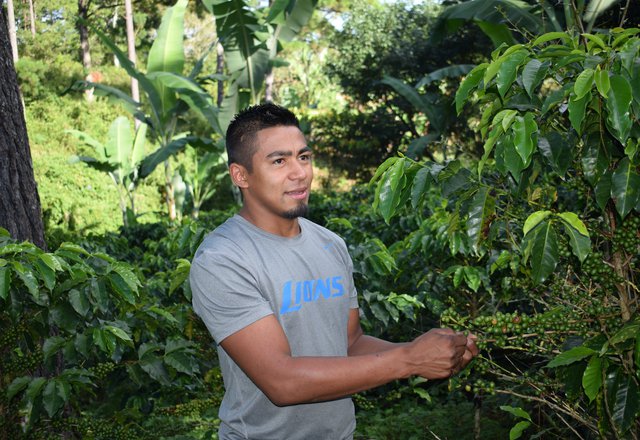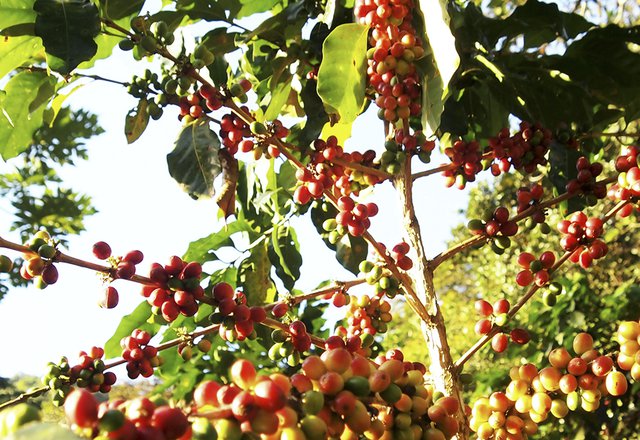Follow the epic journey of Common Good Coffee from Crop to Cup.
SOURCING
Caring about people and the planet is key to how we source our coffee. We only use coffees that are independently certified as Fairtrade and Organic. Many of our producers also carry the Small Producer Symbol too.
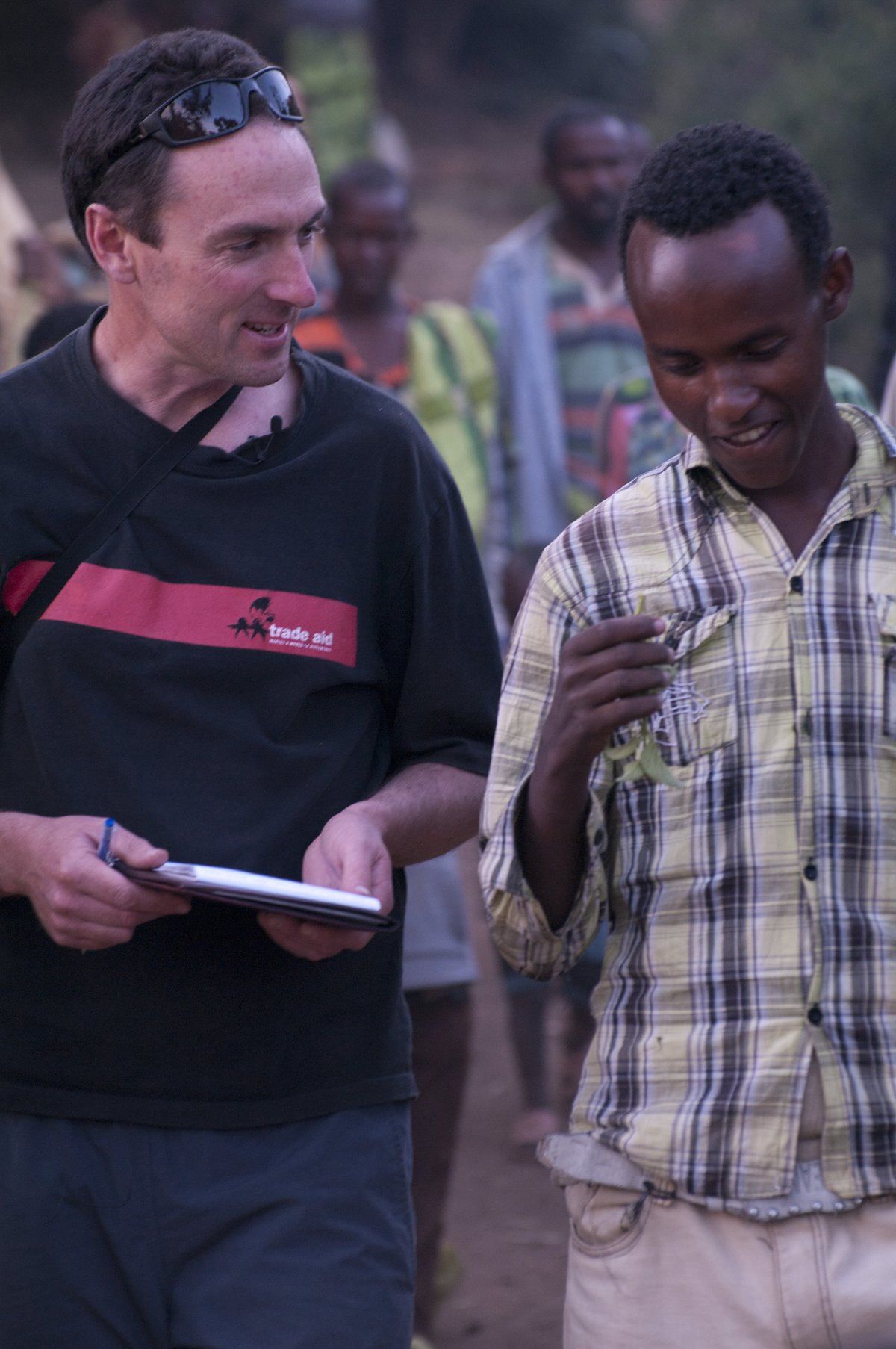
// Justin Purser from Trade Aid on a sourcing trip to Ethiopia.
We source our coffee through Trade Aid. Trade Aid is the largest importer of fair trade coffee and is certified as a World Fair Trade Organisation. Common Good Coffee has also elected to go through a rigorous second stage of certification through Fairtrade Australia and New Zealand.
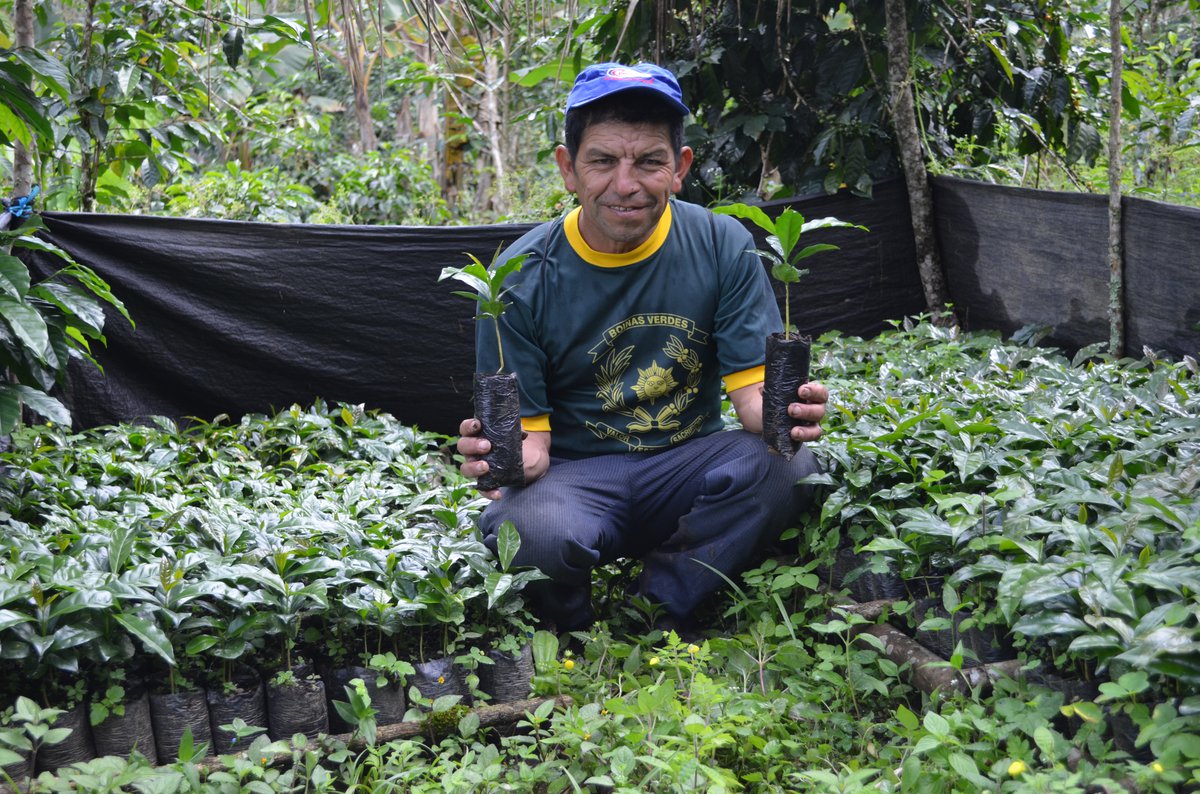
// A coffee seedling nursery in Peru.
GROWING
Most of the world’s coffee is grown between the Tropic of Cancer and the Tropic of Capricorn. The ‘coffee belt’ around the equator offers the environmental conditions needed for coffee to flourish: a temperate climate with plenty of sunshine and water; and no frost. Shade grown coffee, where a canopy provides shelter from direct rain and harsh sunlight is best. The trees also need fertile, well-drained soil and certain soils, such as volcanic soils. Typically, these ideal conditions are found at higher altitudes.
Each seedling takes at least three years to produce fruit. Small white flowers blossom and become cherries, each holding two seeds (beans). Originally green these will mature to a deep red colour over about seven months. A healthy mature tree will produce about 2,000 cherries a year (this equates to under one kilo of green beans, which is even less once roasted). This means that each farmer will need to invest in a large number of trees in order to produce a yield enough to sustain them and their family. Organic coffee farming helps to preserve the natural flora and fauna ensuring that the terroir is protected for generations to come.
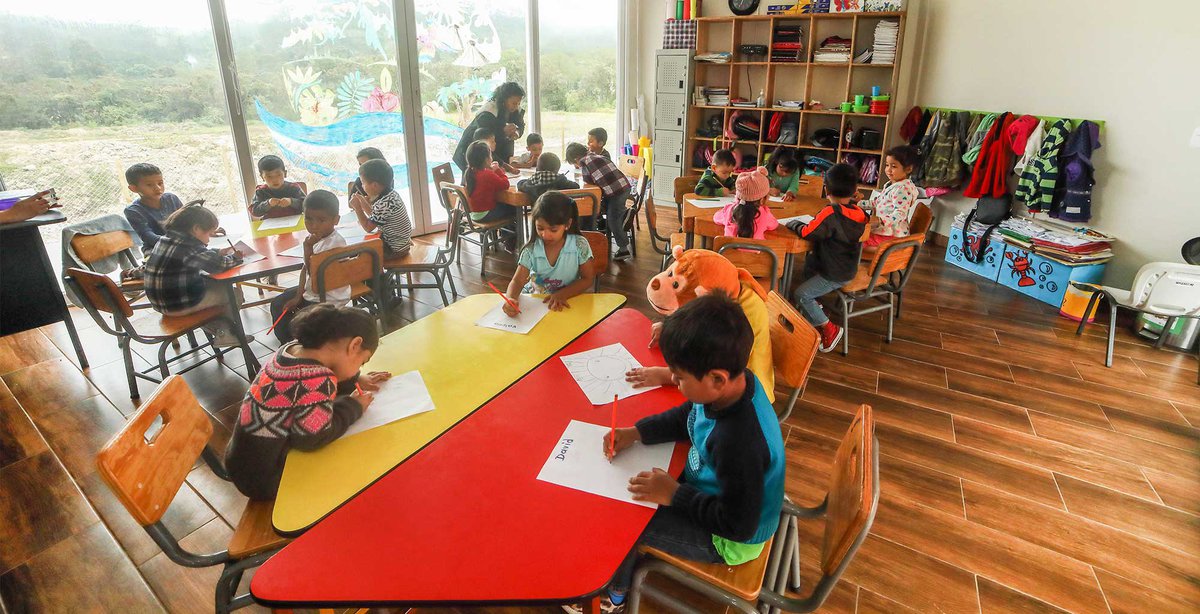
// This school is part of the COSMA co-op in Honduras.
As with all farming, coffee is susceptible to natural affects such as disease and climate change. These have the potential to significantly impact on production and the livelihoods of farmers. Many smaller producers are also subsistence farmers to remain economically viable. Being part of a fair trade cooperative means that farmers have access to additional resources to invest in their future and to sustain them when times are tough. They’re also able to collectively invest in infrastructure that will support their community.
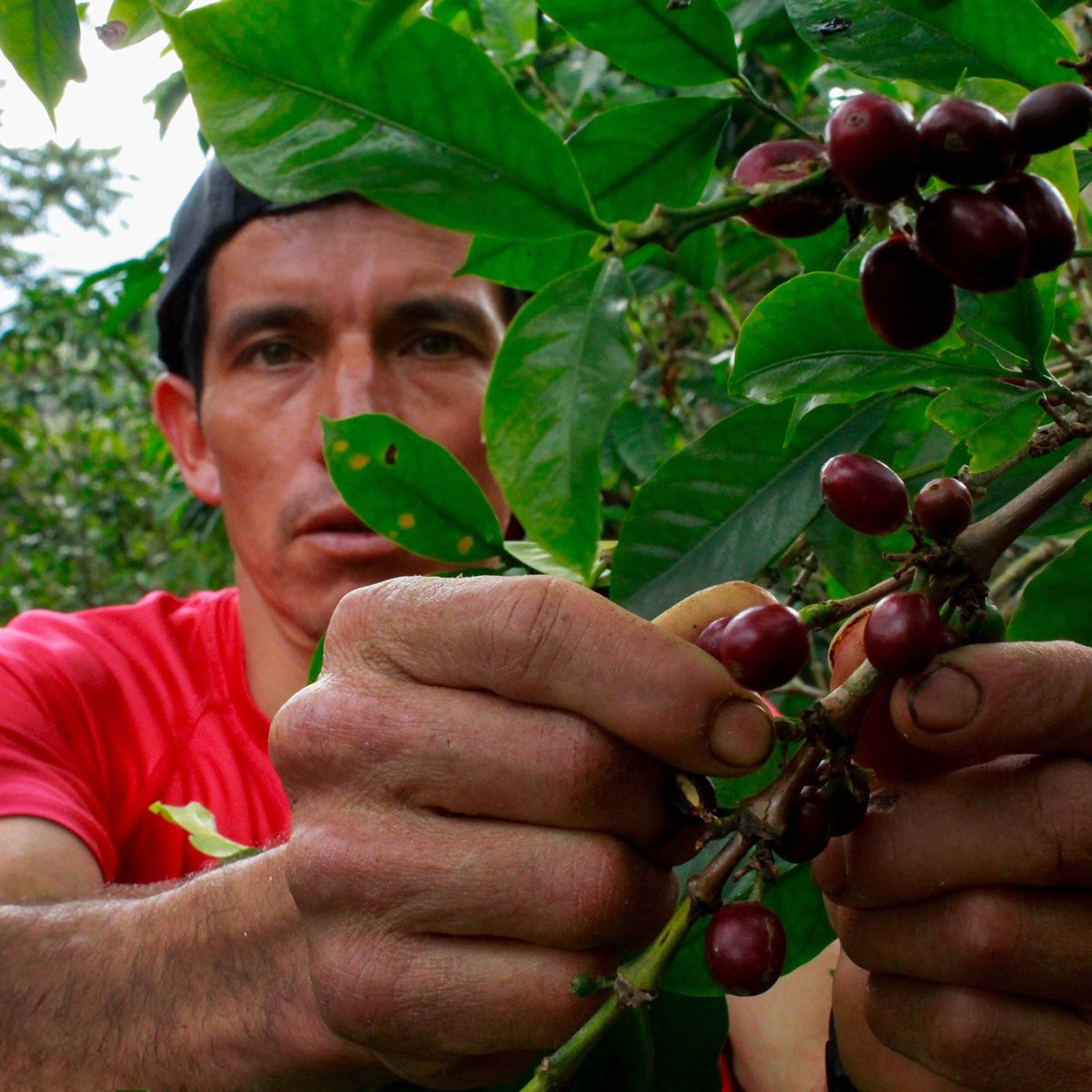
HARVESTING, PROCESSING & DRYING
Cherries take different amounts of time to ripen, so a tree may have flowers, green cherries and ripe cherries all at the same time. Cherries must be picked at their optimum ripeness which means that each tree will require several passes during harvest season. Cherries are hand picked, and so harvesting is the most labour-intensive aspect of coffee farming. In some places, there can be more than one harvest per year depending on varietal, growing conditions and location.
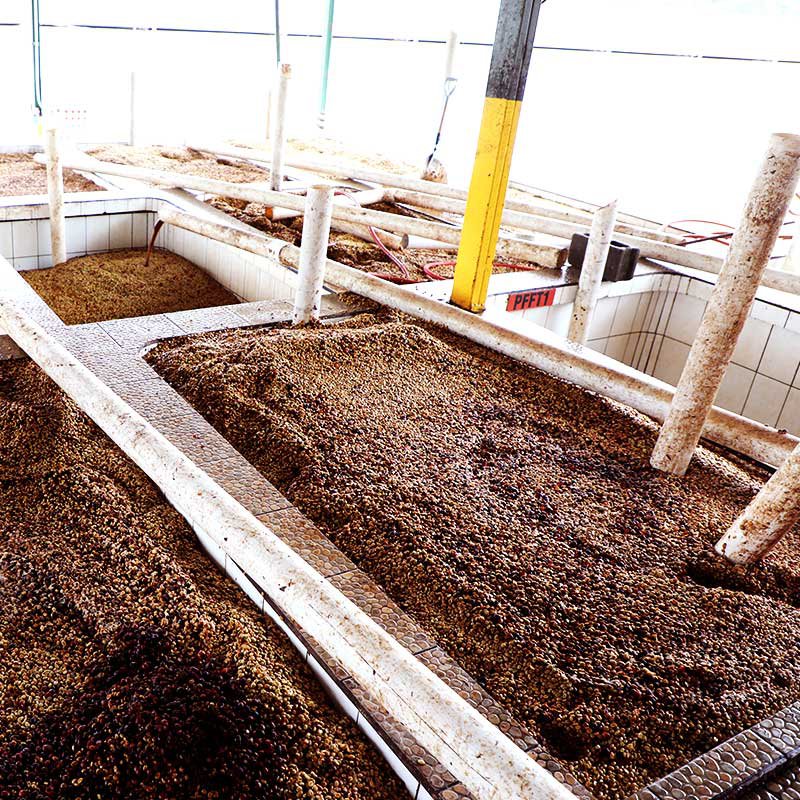
// Pulped coffee cherries as part of the washed process.
Once picked, the cherries must be processed to extract the green beans from the rest of the fruit. The way a coffee is processed has a massive impact on its final quality and flavour profile. There’s three main types of processes. First, a washed (sometimes called wet) process where the cleaned cherries are pulped and left to ferment in tanks of water. Then the beans are separated and laid out to dry. Second, a natural (or dry) process where the cleaned cherries naturally ferment as they dry. A third, and more complex method is honey (or semi-dry/semi-washed). It doesn’t involve honey! Rather the cherries are pulped to remove the skin and then laid out to dry and ferment turning the flesh sticky and honey coloured.
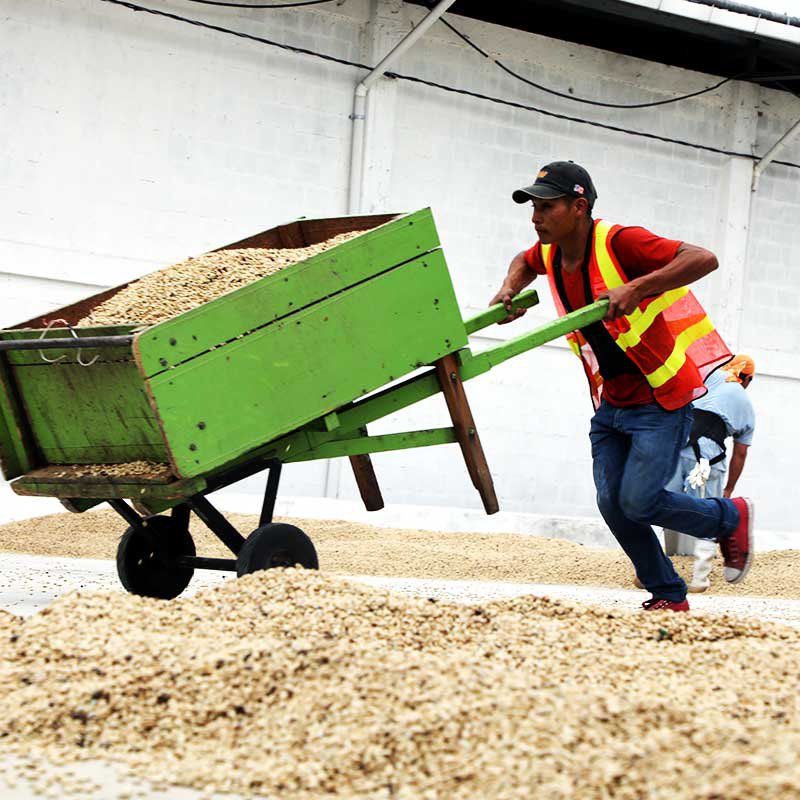
After processing, the beans are then laid out to dry on special beds. They will be turned over to ensure even drying and ensure that they retain exactly the right amount of moisture content. After this, the beans are milled to ensure just the green bean is left. The beans will then be sorted to remove any imperfect beans or other materials (like stones!).
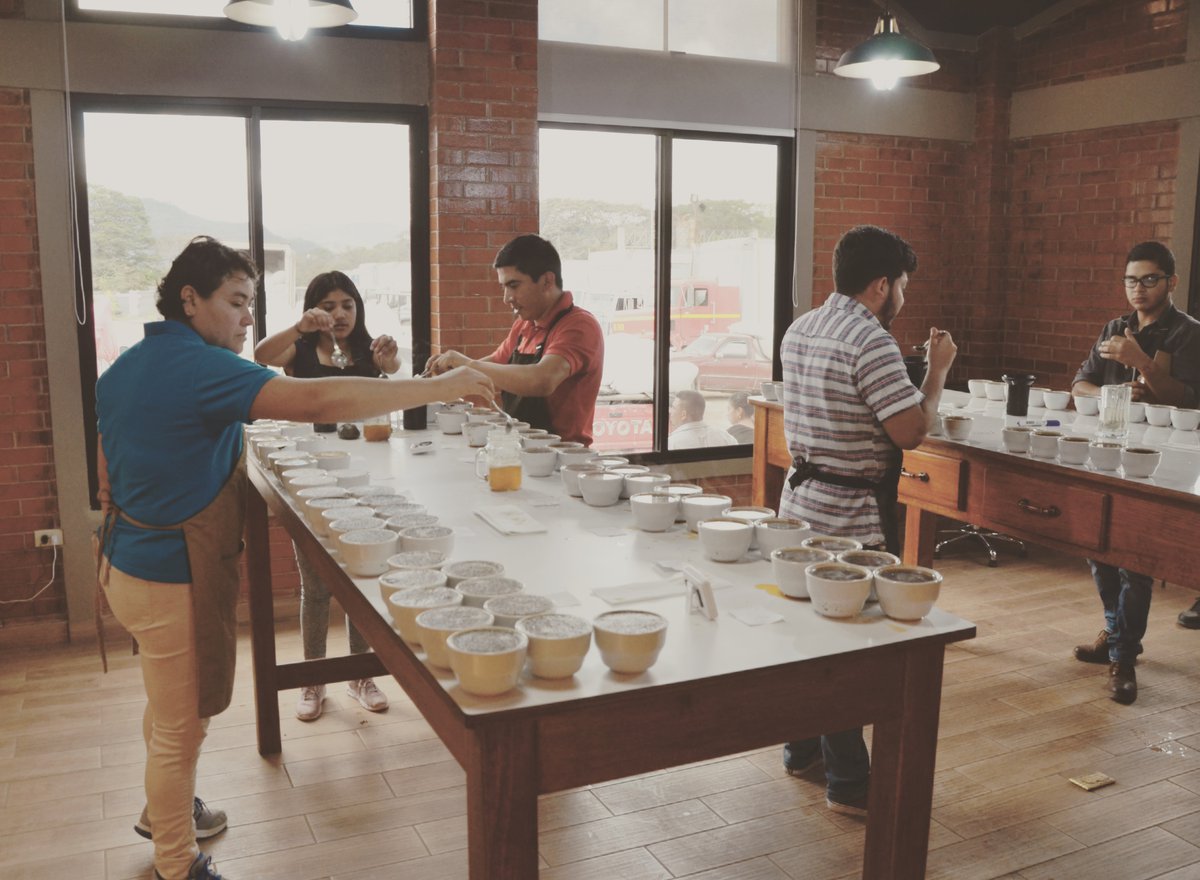
GRADING & CUPPING
Finally, it’s time for the first taste testing! Known in the coffee industry as cupping, small batches of beans are roasted and then graded. This helps determine the quality of the coffee and its value.
Another benefit of belonging to a fair trade cooperative is that farmers have the opportunity to continuously improve the quality of their coffee through shared expertise and resources. For example, COMSA has a designated cupping laboratory which ensures the quality of its coffee offerings.
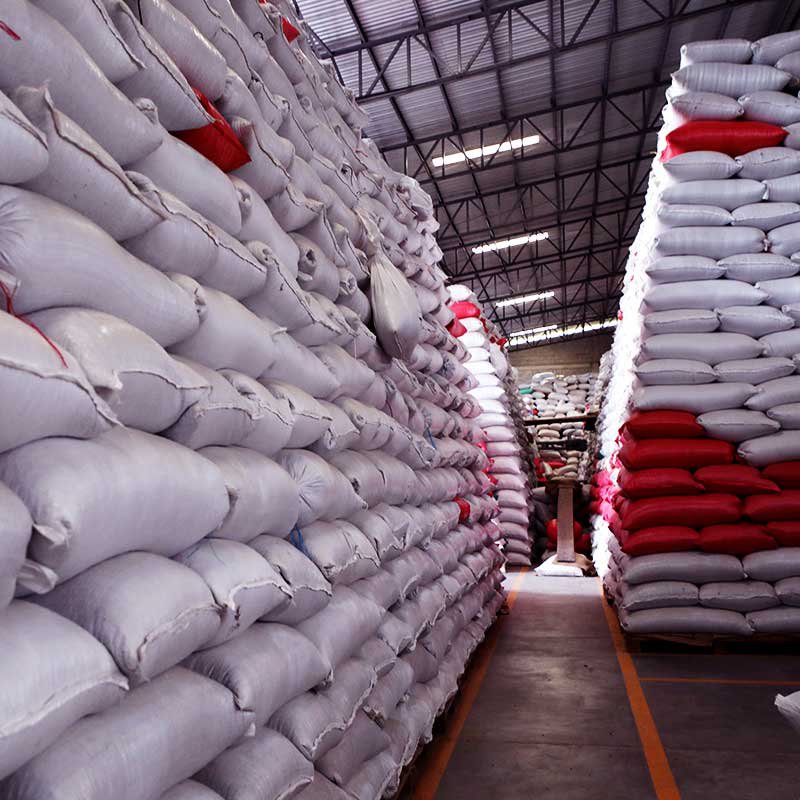
TRANSPORTATION & EXPORT
The coffee then begins its journey to us. The conditions that make certain locations ideal for coffee growing, also means that getting the finished product to a port can be challenging. The coffee also needs to be stored properly to prevent it from deteriorating as it makes its way across the oceans to Aotearoa.
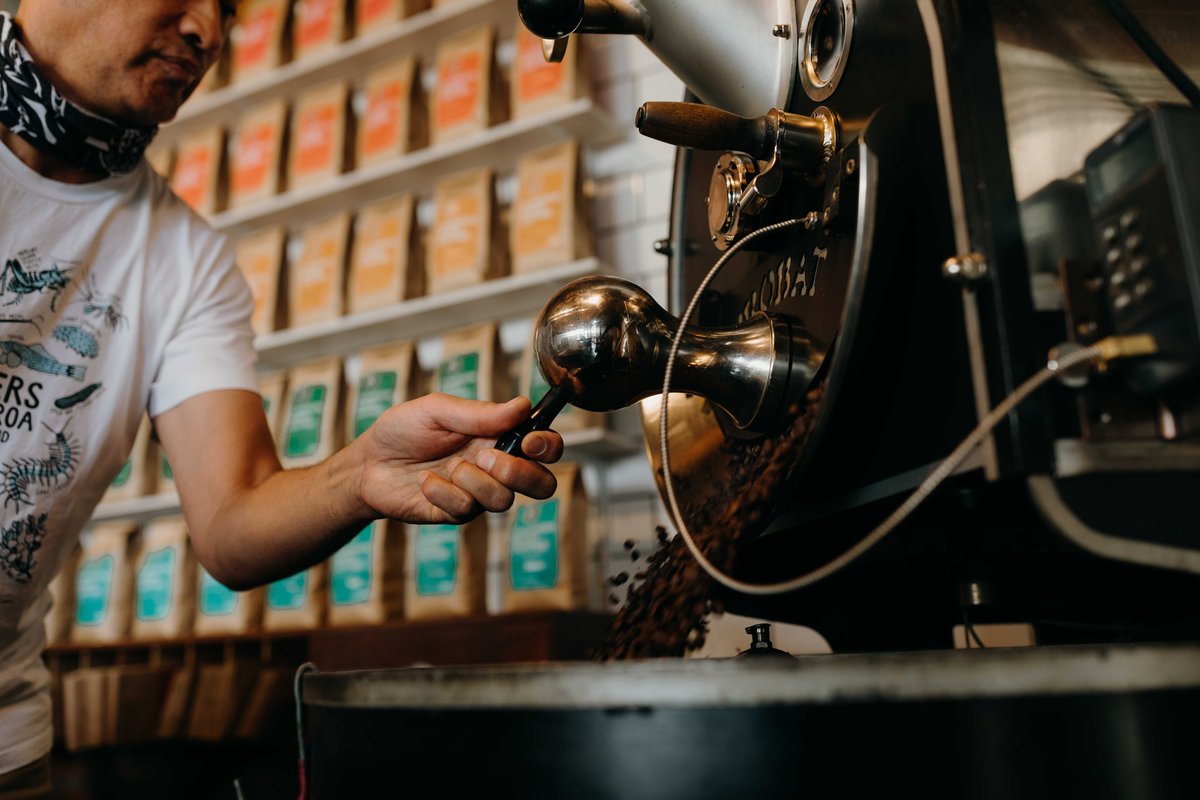
ROASTING
With the mammoth effort that’s gone into producing the coffee, our roasters take on a huge responsibility in ensuring that we create a coffee that honours the farmers’ labour. Our head roaster, Vernon, carefully roasts each coffee to bring out its inherent qualities and teaches our other roastery staff how to do the same.

Our team at the roastery repeatedly cup the coffee to check that we are maintaining our excellent standard with each roast.
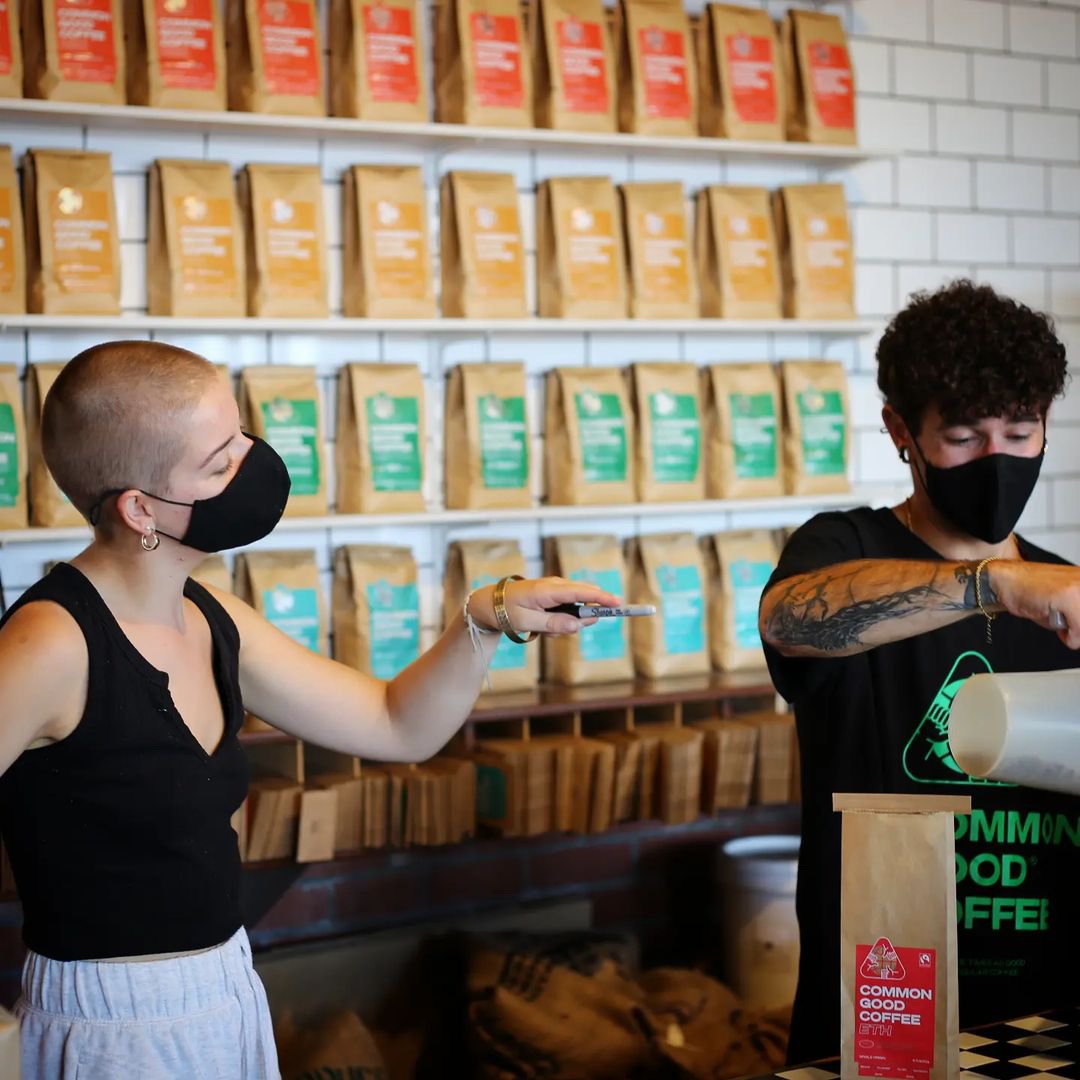
DISPATCH
There’s a wee bit of work that goes into bagging and dispatching to homes, businesses, cafes and other organisations across the country to ensure that the coffee arriving at your door is in peak condition.
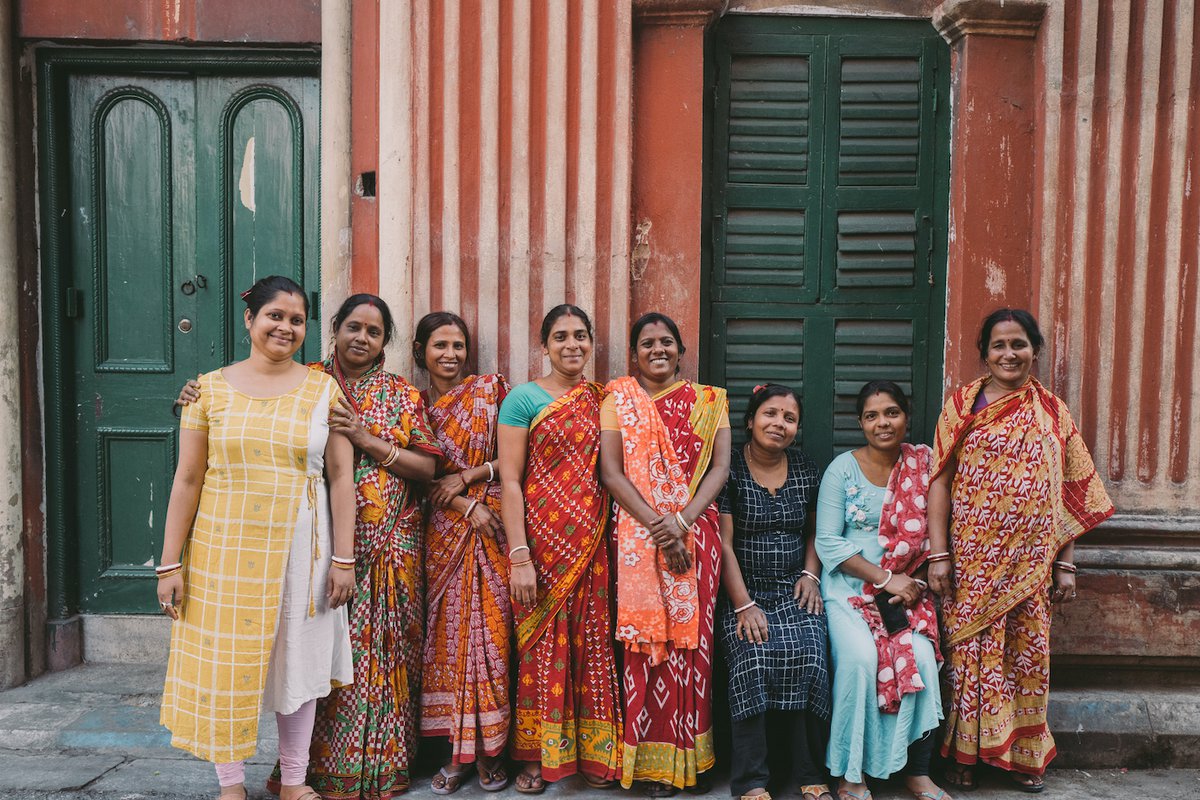
JOYYA
But the process behind Common Good Coffee doesn’t end while you’re making a tasty brew. We redistribute $5 from every kilo sold to our partners Joyya in West Bengal, India. As of Aug 2022 we have redistributed more than $117,000 to Joyya who use it to support fair sustainable businesses, offer vocational and life skills, provide access to crucial social services, education for neighbourhood children, and empower communities to support one another and build intergenerational change. You can read their recently released impact report here.
